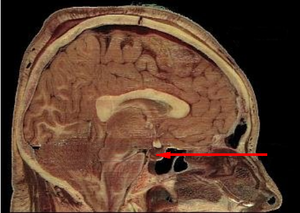Johns Hopkins Pituitary Patient Day
Join us on Saturday, September 28, 2013, for the 5th Annual Patient Education Day at the Johns Hopkins Pituitary Center.
When: Saturday, September 28, 2013
Time: 9:30 a.m.
Location:
Johns Hopkins Mt. Washington Conference Center
5801 Smith Avenue
Baltimore, MD 21209
map and directions
Time: 9:30 a.m.
Location:
Johns Hopkins Mt. Washington Conference Center
5801 Smith Avenue
Baltimore, MD 21209
map and directions
| Patient Education Day Agenda: | ||
| 9:30 – 10:00 AM | REGISTRATION | |
| 10:00 – 10:25 AM | What is the pituitary gland, where it is located, what it does, and what can go wrong | Gary Wand, MD |
| 10:30 – 10:50 AM | How pituitary tumors can affect your vision | Prem Subramanian, MD, PhD Vivek Patel, MD, PhD |
| 10:50 – 11:10 AM | Cushing disease journey: a patient’s perspective | Stacey Hardy |
| 11:15 – 11:40 AM | Surgery for Pituitary tumors: from very tiny to very large | Alfredo Quinones-Hinojosa, MD Gary Gallia, MD, PhD Alessandro Olivi, MD |
| 11:40 – 12:00 PM | Radiation therapy: when, why, and how | Lawrence Kleinberg, MD Kristen Redmond, MD |
| 12:05 – 12:25 PM | The medications you may be taking (new and old ones): what you need to know | Roberto Salvatori, MD |
| 12:30 – 1:25 PM | Lunch | |
| 1:30 – 3:00 PM | PM Round table sessions: 1) Medical therapy (Wand/Salvatori) 2) Surgical therapy (Quinones/Gallia/Olivi) 3) Radiation therapy (Redmond/Kleinberg/Lim) 4) Vision issues (Subramanian/Patel) | |
*This schedule is subject to change
Please R.S.V.P. by September 13, 2013, vie email (preferred) to PituitaryDay@jhmi.edu or to Alison Dimick at 410-955-3921.
Reservations will be taken on a first-come, first-serve basis.
